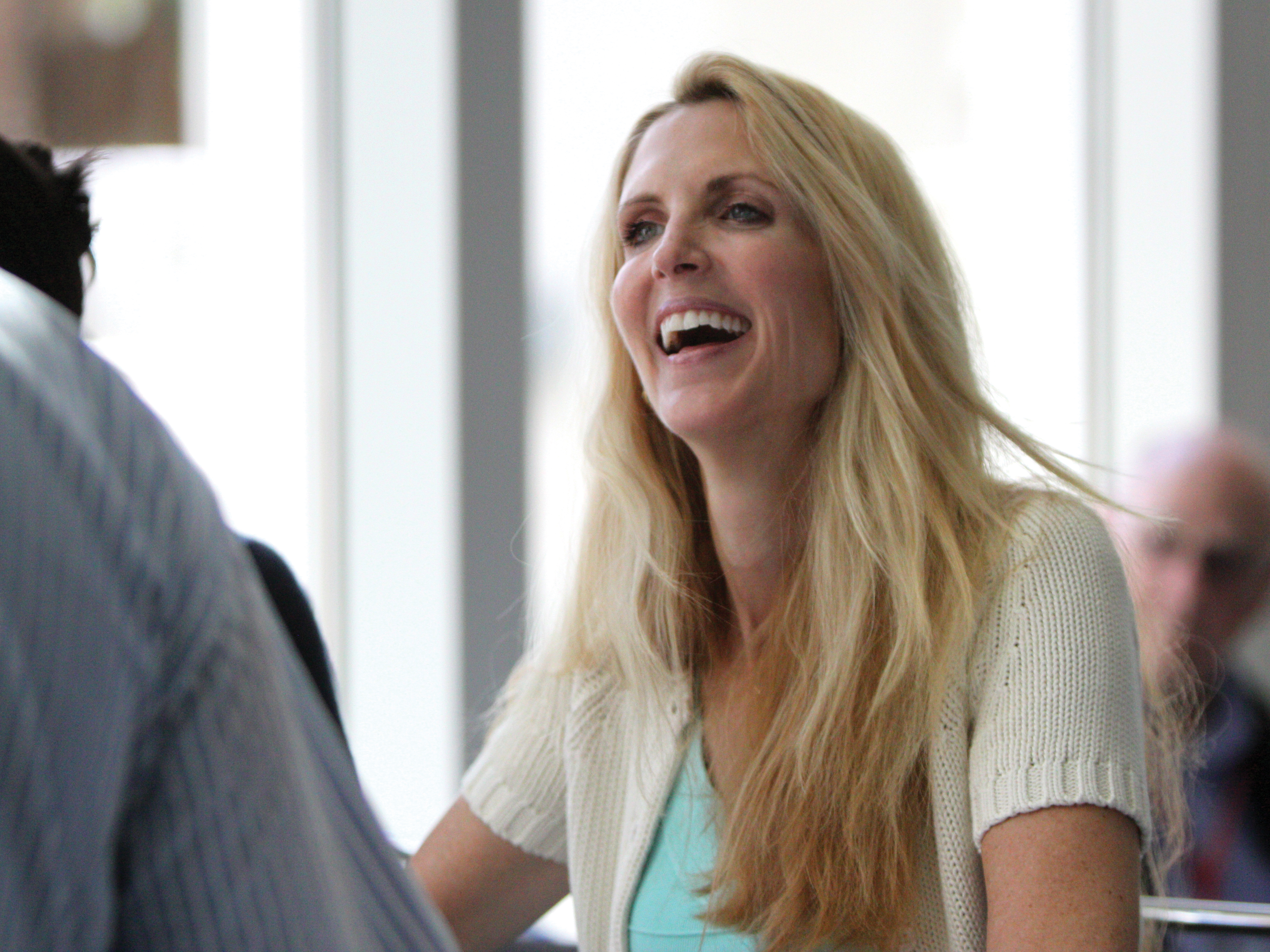
On Wednesday, April 19, UC Berkeley canceled a planned speaking event by conservative commentator Ann Coulter, citing security concerns. Due to Coulter’s determination to speak, the event was later rescheduled, only to be canceled again on Wednesday, April 26, as Berkeley could not guarantee Coulter’s safety in the face of significant protest.
Berkeley’s cancellation of this speaking event due to security concerns is simply unacceptable. When a university agrees to host a speaker (whether they are invited by the university itself or by a campus organization), that university becomes obligated to ensure the speaker is treated fairly and that they get the chance to actually speak.
A university hosting a speaker must be able to do several things. The campus must provide an adequate venue for the event. They must be able to secure it, so that if riots or other violence erupt, no one at the event is harmed. And on the off chance that the situation is too threatening, the university must provide an equivalent opportunity for the speaker to return, so that there is no show of bias in favor of or against that speaker.
Berkeley, however, failed to meet these requirements. The first and second planned event were both cancelled under the vague threat of violence that could have begun as a liberal response to this conservative speaker. There were no actual threats beyond this generic problem that could be expected from essentially all UC campuses; indeed, the cancellation of the second event happened in the midst of an entirely peaceful protest between students supporting and opposing Coulter. Thus, Berkeley overreacted to the supposed threat to Coulter’s safety. Furthermore, if her safety really was that much of a concern, and if the campus was really dedicated to hosting the event, then additional security measures beyond a police presence could have been taken (e.g. hiring additional security forces).
Berkeley’s cancellation of this event by a conservative speaker, following a previous situation when far-right commentator Milo Yiannopoulos was kept from speaking at Berkeley for actual safety reasons, means that the university is falling short of its ideological purpose — to ensure the free exchange of ideas and protection of speech. Now, a university is not under any obligation to promote a particular political viewpoint or create events just to make sure all viewpoints are equally represented. Rather, a university needs to treat all events the same, regardless of the politics of the speaker. Thus, by not doing an adequate job of aiding and protecting the events planned by certain pundits who happen to have political ideologies that are unpopular on that campus, Berkeley is catering to its majority without regard for the students who are in the political minority. It is hard to see Berkeley’s administration as politically unbiased when only conservative speakers are being forced to stay away from campus for safety reasons.
It is possible that Berkeley just wants to avoid controversy and potential outbursts of violence on its campus by preventing an unpopular speech from happening. However, it is ultimately not the place of a university to dictate whether a speech will happen based on the speaker’s popularity on campus. When this happens, there is no chance for intellectual growth for the students, who deserve the chance to have their ideas challenged and to hear ideas that are not their own. Besides, if a speaker plans on speaking at a campus, there is certainly someone there who wants to listen, so it is wrong to deny them that chance to hear the speech.
Only two factors should ever be criteria for preventing an event from happening: Whether the speech would incite violence, and whether violence actually happens. In the former case, the speech is no longer protected speech under the First Amendment, so a university has no need to treat it as if it were so; such events would probably never get a university’s consent in the first place, though. In the latter case, safety must be actively imperilled to be grounds for terminating an event. If there is an explicit threat to the speaker or the event (e.g. confirmed death threats toward the speaker), then it is best to not take chances with the speaker’s life; if violence has broken out, as what happened prior to Yiannopoulos’ speech at Berkeley, it is likewise best to keep the speaker away from the people who would probably bring them harm.
When an outbreak of violence does occur in response to a planned speech (and only when it really has broken out, not when there is just a potential for it), a university such as Berkeley must make restitution. They can make a serious attempt at rescheduling the event on campus, or push for it to happen somewhere equivalent in the vicinity of the campus or even arrange for the speech to occur via a live stream, if there is no safe way to bring the speaker near the campus. Alternatively, events could be planned as debates to begin with — speakers from different parts of the political spectrum can all speak at the same campus at the same time, on the same issue; this would balance problems of representation of different political views.
Ín the end, hosting speakers from the unpopular half of the political spectrum should not be viewed as a “security” or “safety” issue for a university; it should be viewed instead as an opportunity for exchanging ideas in an open environment, and also as a symbol of a university’s commitment to freedom of speech. This editorial board hopes that UC Berkeley will consider this the next time it faces a request by a conservative speaker, and take the opportunity to uphold the First Amendment.








